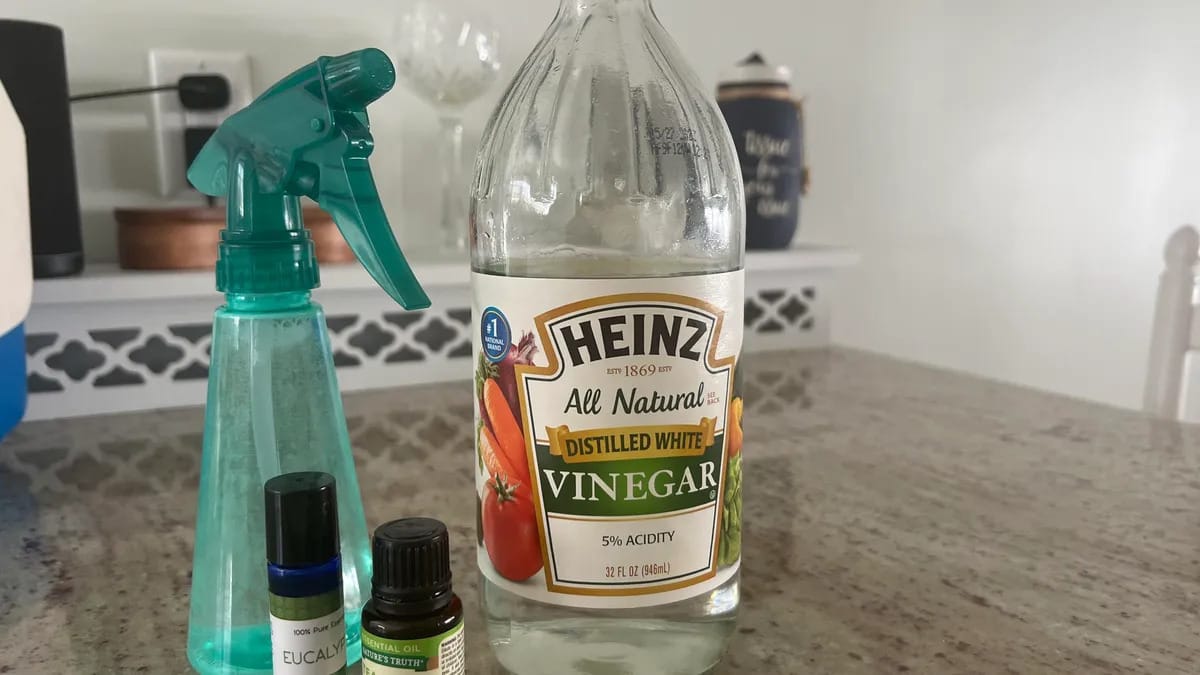- Grassroots Vitality
- Posts
- What Is Apple Cider Vinegar Actually Good for?
What Is Apple Cider Vinegar Actually Good for?
Separating Myth from Science on the Health Benefits of ACV
🩺 WELLNESS SPOTLIGHT: APPLE CIDER VINEGAR UNFILTERED
This week we’re diving into the amber-colored world of apple cider vinegar—that tangy, pungent liquid that has found its way from our grandmother's pantries to the shelves of health food stores everywhere.
Apple cider vinegar has been hailed as everything from a weight loss miracle to a gut health savior, with devotees taking their daily shots with the commitment of religious ritual. But does this fermented apple juice truly deserve its place in the pantheon of holistic health remedies, or is it just another wellness trend that's more sizzle than substance?
Recently, my wife and I sat down to watch Netflix’s show of the same name: Apple Cider Vinegar. Its less-than-sympathetic take on holistic medicine inspired me to undertake a deep dive on this supposed panacea. After seeing countless influencers holding up their bottles of "ACV" with the "mother" (those cloudy strands of beneficial bacteria), I was left wondering: what's really happening when we incorporate this ancient ingredient into our modern health routines?
Some swear it balances their pH, improves digestion, clears skin issues, and even helps regulate blood sugar. Others claim it's changed their relationship with food entirely. Pretty impressive for something that makes your face pucker at first taste!
While I'm all for ancestral wisdom, I also believe in approaching health claims with a healthy dose of skepticism and curiosity. In this newsletter, we'll separate fact from fiction and explore the actual science behind the claims.
What is apple cider vinegar?
Apple cider vinegar derives its name from "vin aigre," French for "sour wine." This sourness stems from acetic acid, which forms through a two-stage fermentation process.
First, yeasts transform apple sugars into alcohol. Then, acetobacter bacteria convert this alcohol into acetic acid. During this fermentation, a substance known as the "mother" develops—visible as floating strands in unfiltered bottles. This mother consists of beneficial yeast and bacteria combinations.
While many attribute apple cider vinegar's health properties to this "mother" because it functions as a probiotic, scientific research hasn't fully confirmed its significance. Nutritionally, apple cider vinegar contains B-vitamins and polyphenols (antioxidants from plants), similar to apple juice.
In reality, the health advantages of apple cider vinegar likely come from its unique combination of probiotics, acetic acid, and nutritional components.
Here's a detailed breakdown of what apple cider vinegar (ACV) has been proven to do and what it hasn't:
Proven Benefits of Apple Cider Vinegar
Lowering Blood Sugar Levels
Several studies have found that consuming apple cider vinegar daily could slightly reduce fasting blood glucose and A1C – a test that measures average blood glucose levels over three months – in people with Type 2 diabetes.
A 2023 study found that consuming 30 mL of ACV daily for eight weeks significantly lowered A1C levels from 9.21% to 7.79% in participants who also followed a healthy diet.Cholesterol Reduction
There is evidence that ACV can lower total cholesterol and LDL (bad) cholesterol, particularly in individuals with type 2 diabetes. A 2021 meta-analysis suggested that consuming up to 15 mL of ACV per day for more than eight weeks could lead to these reductions.Antimicrobial Properties
ACV has been traditionally used for its antimicrobial effects, helping to preserve food and potentially treat minor infections.
In 2005, a study assessed vinegar’s anti-microbial properties by inoculating arugula with Salmonella. The researchers treated the tainted arugula with either vinegar, lemon juice, or a combination of them both, to see if these interventions could reduce bacterial growth.
They found that both lemon juice and vinegar decreased the growth of Salmonella. In fact, the ACV/lemon juice mixture decreased Salmonella to undetectable levels (don’t forgo washing your lettuce on this basis though).Weight Loss
Apple cider vinegar (ACV) has emerged as a promising aid in weight loss. In one study, participants who consumed 15 ml of ACV twice daily lost an impressive 8.8 lbs over 12 weeks, outpacing those without ACV who lost just 5 lbs. Another study revealed even more comprehensive benefits, with significant reductions in weight, body fat, and key metabolic markers after taking three 15 ml doses daily for 12 weeks. While ACV shows promise, it's most effective when paired with a balanced diet and regular exercise.
Another 2024 study demonstrated substantial health improvements following a 12-week regimen of consuming three 15 ml doses of apple cider vinegar daily. Participants experienced significant reductions in weight (ranging from 6 to 8 kg), body fat percentage, waist and hip circumferences, and body mass index (BMI). Additionally, there were notable decreases in blood sugar levels and blood lipid profiles, including fats and cholesterol.
Unproven or Limited Evidence Benefits
Cancer Prevention: While some research suggests that acetic acid can kill cancer cells, particularly in acidic environments where cancer cells tend to thrive, there is no scientific evidence supporting the claim that ACV alone can prevent cancer.
Acid Reflux Control: Proponents suggest that ACV can introduce more acid into the digestive tract, potentially helping individuals with low stomach acid (hypochlorhydria) by improving digestion and reducing symptoms like bloating and acid reflux. While this theoretically makes sense, these claims are largely based on personal experiences rather than scientific studies. If it works for you—great!
High Blood Pressure Reduction: Some animal studies have shown promise, however human trials are lacking. The way ACV might work to lower blood pressure is through initiating a reduction in renin activity (renin is produced by the kidneys and plays a crucial role in regulating blood pressure, sodium, and potassium levels), which in turn leads to lower levels of angiotensin II. This protein narrows blood vessels and helps regulate blood volume and pressure.
Skin Benefits: While some people use ACV for skin conditions like acne and dermatitis, there is limited scientific evidence supporting its effectiveness for these uses. Undiluted ACV can be quite irritating to the skin.
pH Balance: Claims that ACV can balance the body's pH levels are not supported by scientific evidence. The human body has its own mechanisms to regulate pH levels.
Surprisingly Effective But Not A Cure-All
The journey through the world of apple cider vinegar reveals a nuanced picture: a traditional remedy with some scientifically-backed benefits alongside claims that still await validation. From its humble origins as "sour wine" to its modern status as a wellness staple, ACV occupies that fascinating middle ground between folk wisdom and clinical research. While it's not the miracle cure that some enthusiasts proclaim, neither is it merely a passing fad without merit.
As with many aspects of health and wellness, moderation and informed use appear to be key. So whether you're taking a daily ACV shot or just occasionally incorporating it into your cooking, remember that this tangy elixir represents something valuable in our approach to well-being—the marriage of ancestral practices with contemporary understanding, of tradition with scientific inquiry. And perhaps that balanced perspective is the most potent health tonic of all.
💡HEALTHY HACKS: APPLE CIDER VINEGAR FIRE TONIC

A bold, spicy, and potent infusion, this tonic enhances dressings, soups, and stir-fries while offering a health boost. Allow it to steep for at least 14 days for optimal potency.
Ingredients:
½ cup fresh gingerroot, peeled & sliced
½ cup horseradish root, peeled & grated
1 medium onion, sliced
6 garlic cloves, peeled & crushed
2 spicy peppers (habanero, Scotch bonnet, jalapeño, or Serrano), sliced
1 lemon, sliced
1 (3-inch) turmeric root, peeled & grated or thinly sliced
1 stalk lemongrass, sliced diagonally
1 quart organic, unfiltered apple cider vinegar
Instructions:
Layer all ingredients in a clean glass jar or pulse in a blender for a rough chop.
Pour vinegar over the mixture, filling to the top.
Cover with plastic or waxed paper before sealing with a lid to prevent rust.
Store in a cool, dark place for 14-60 days, shaking daily.
Strain through cheesecloth or a fine sieve, squeezing out liquid. Discard solids.
Store the tonic in clean jars.
Usage & Storage:
Keep at room temperature or in the fridge for months.
Mix with hot water and honey for a soothing drink or use in cooking.
💊 SUPPLEMENT SAVVY: ARE ACV GUMMIES JUST AS GOOD AS THE LIQUID?
Apple cider vinegar (ACV) has gained a reputation for supporting digestion, blood sugar balance, and overall health—but there’s no denying that it’s lacking in the taste department. So does the convenience of gummies measure up to the traditional liquid?
The gummies typically only contain around 500 milligrams of ACV per serving, which is equivalent to a few teaspoons of apple cider vinegar. While ACV gummies offer a tastier, more palatable option, they often contain added sugars and lower acetic acid content, which is the key active compound in ACV. The liquid form, on the other hand, delivers full potency without fillers, but its strong taste and acidity can be harsh on tooth enamel.
Bottom line: If you’re looking for maximum benefits, the liquid is the way to go—just be sure to dilute it!
🧼 BETTER HABITS: THE CASE FOR HOMEMADE CLEANERS

In our pursuit of clean homes, we often overlook what's actually in those store-bought cleaning products. This week, we're exploring why making the switch to homemade cleaners might be one of the best decisions for your health, wallet, and the environment.
Simple Recipes to Try
Glass Cleaner (Low-Toxicity Option)
50% distilled water
50% white vinegar
Heavy-Duty Cleaner
¼ cup baking soda
1 tablespoon natural soap
1 tablespoon fractionated coconut oil
Optional: 15 drops lemon essential oil
Getting Started
All you need is a good spray bottle (glass bottles are recommended for longevity) and a few basic ingredients from your pantry. The transition doesn't have to happen all at once—try replacing one commercial cleaner at a time as you become comfortable with your homemade alternatives.
Remember that a clean home should contribute to your health, not compromise it. Making the switch to homemade cleaners is a simple step toward creating a truly healthy living environment for you and your family.
📣 COMMUNITY PULSE POLL
Have a wellness journey to share? I’d love to feature your story—reach out and inspire others with your experience!😃
If this issue resonates with you, share it with your community to get the word out!
See you next week! 👋
Reply